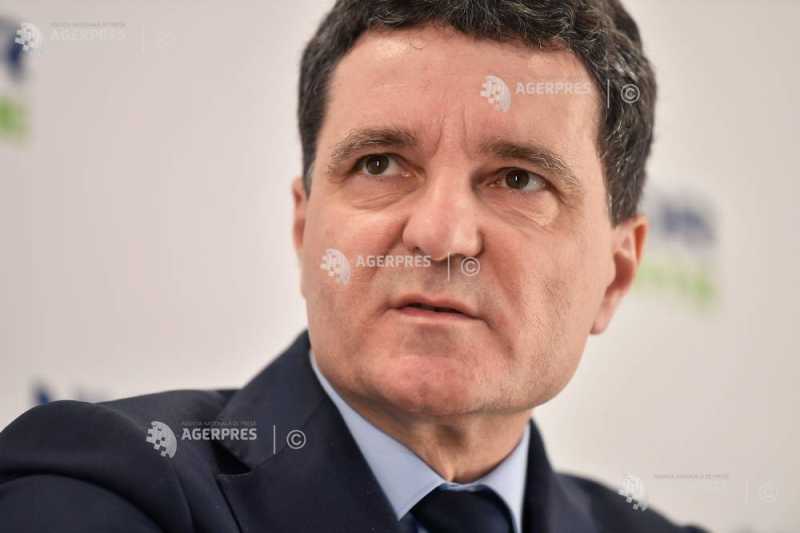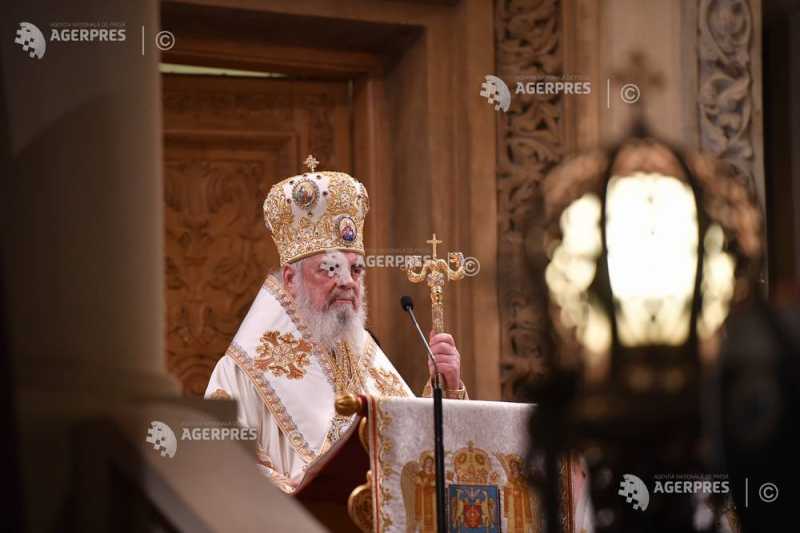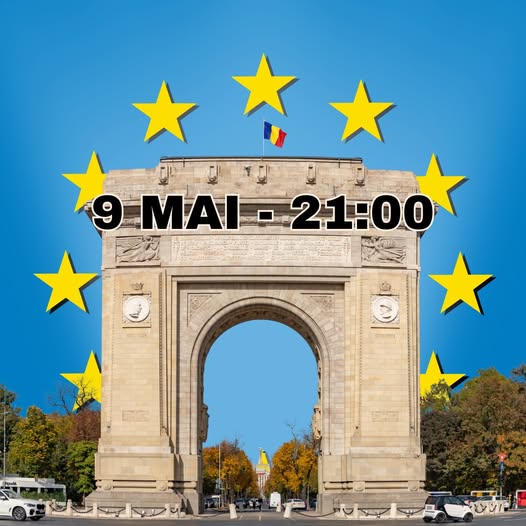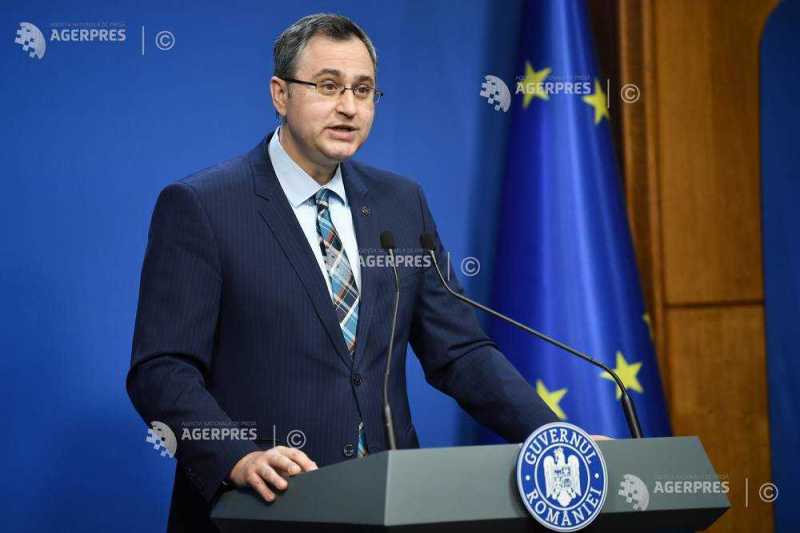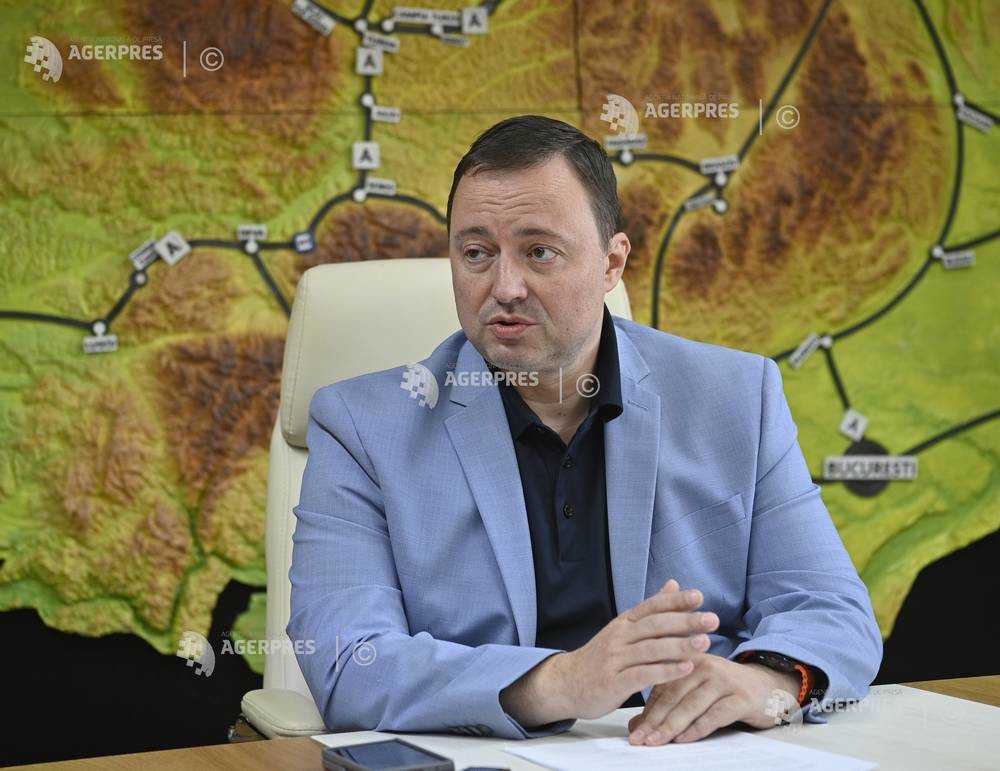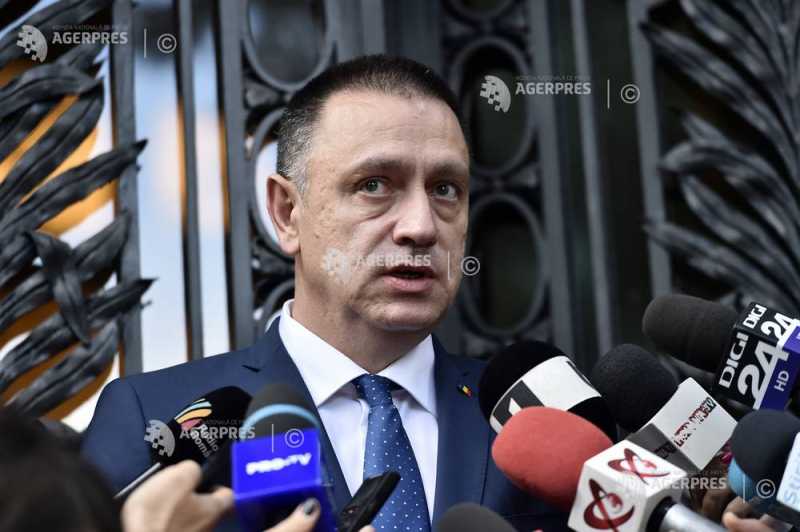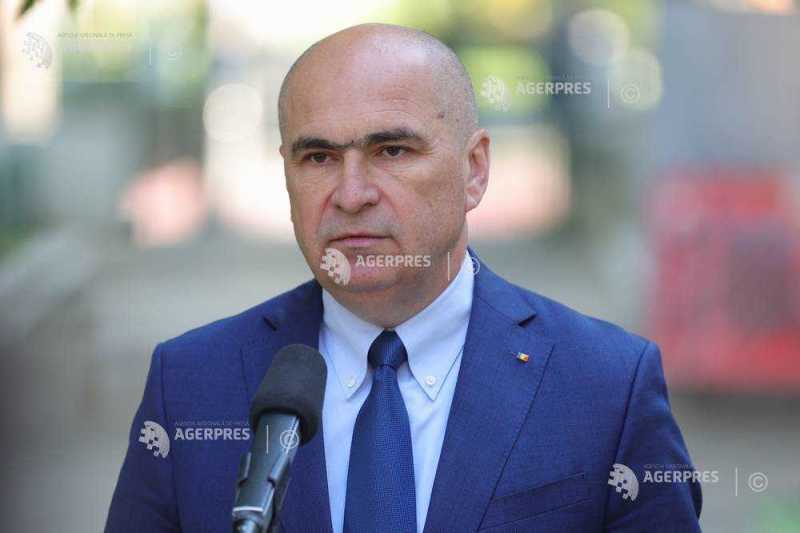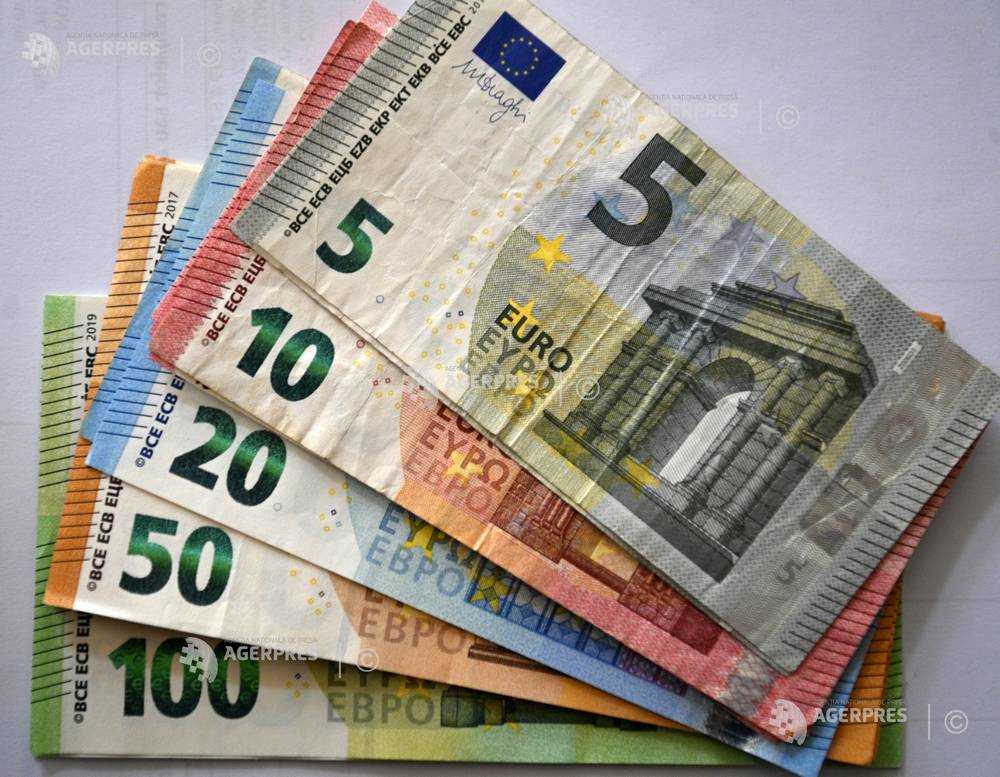CONTEMPORARY AUTHORS/Dorina Rusu: Constantin Tanase, more interesting and complex than I could have imagined
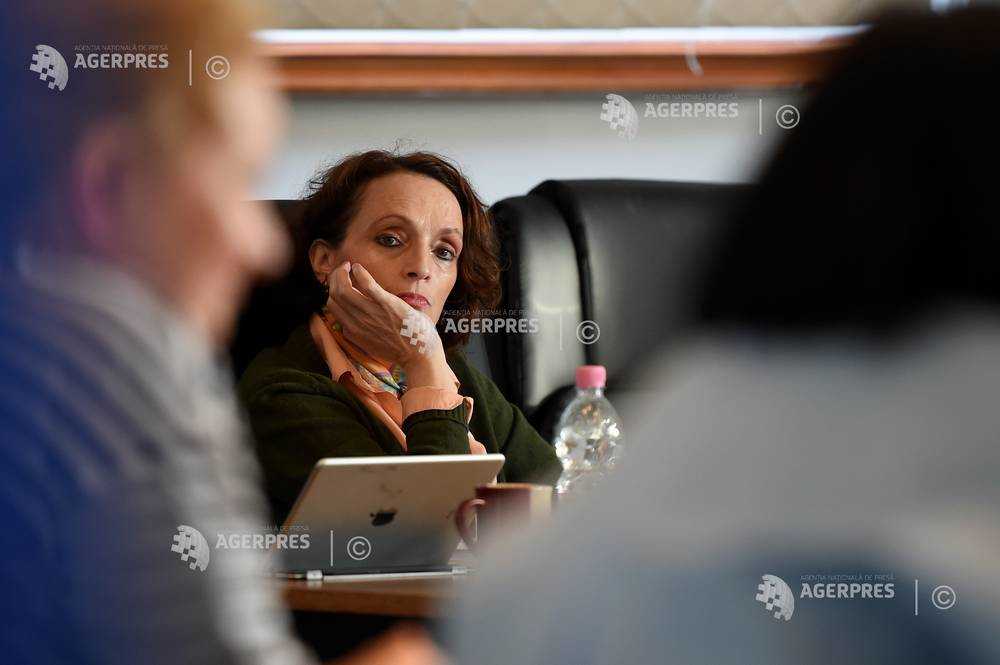
Dorina Rusu is the author of a biographical novel, 'Constantin Tanase. A Serious Man' (2024), dedicated to the famous Romanian actor and comedian, an emblematic personality of the Romanian variety theatre world, with this year marking the 145th anniversary of the renown personality's birthday.
The book is carefully built around the many facets of the actor's personality and the complex role he played in the society of his time, as he was not just an actor, but also a theatre manager, a unionist and a philanthropist, a beloved celebrity, who was appreciated and loved by all strata of society.
AGERPRES: Why a biographical novel about Constantin Tanase? Why him?
Dorina Rusu: I wanted to write a book for the biographical novel collection at the Polirom publishing house every since Adrian Botez launched it, several years ago. Every book that I've read from this collection shed a new light on the life of the different personalities of our literary, musical, theatrical or art life the respective book was about.
I chose to write about vaudeville actor Constantin Tanase, the founder of the 'Carabus' Theatre, because I am very much interested in politics and because I was fascinated by the manner in which his biography as an actors is deeply related to the political scene, although he was never a member of any political party and he never sided with one political party or another, with one politician or another, and never received any subsidies from the state.
And, in addition to that, I also chose Tanase because I wanted to follow that legend saying that the actor was killed by the Russians, because of his famous couplet: 'It was bad with 'was ist das'/ But it's worse with 'davai watch'/ From Dniester to the Don/ Davai watch, davai coat/ Davai watch, davai land/ Harasho comradeship.'
AGERPRES: There is a note at the end of your book about Constantin Tanase where you enumerate the documentary sources you used and also a bibliography, how difficult it was for you to document for this book, and you started with what?
Dorina Rusu: It was a long process, but it was more fascinating than hard. I enjoyed every moment of this journey. I started with Nicolae Carandino and Ioan Massoff, who wrote books about Tanase, to come up with a first - and, of course, incomplete - portrait of the actor.
Carandino's book stops around the year 1939, while Massoff's book was first published in 1947, meaning that the latter was not able to write anything about the troubles Tanase faced towards the end of his life, from 1944 until August 1945, when he died, in the context in which the communists were already holding the power. He also couldn't write anything about Tanase's problems with the Iron Guard.
Massoff's book was later republished several times during the communist regime but, of course, he couldn't add anything. Then I found a book written by George Mihalache, which seems to be rarely quoted, although it does provide some important information.
And, also, in order to be sure that I come up with own version of who Tanase was instead of just repeating and building on the stereotypes about him, I read tens of articles from the old newspapers available in the Arcanum digital archive, as I wanted to understand him better by reading his interviews. There are many such interviews available, since he was this great personality.
Then I looked for more clues about who he was in the memoirs of the actors, singers or politicians who were his contemporaries. Even some small paragraphs that I found sometimes helped me to better understand how he was perceived as a man and an actor.
I read some books about the First World War too, especially about the withdrawal of 1916, when Bucharest was under German occupation and about his taking refuge in Iasi. And I read some books about the politics and the general climate in Bucharest in the interwar period and after the Second World War.
I even read anything that I could find on Josephine Baker. For the part with the bullfights I read Hemingway's book 'Death in the Afternoon'. I wanted to understand what fascinated him so much about bullfighting that he wanted to bring a bullfight in the city of 'Mitica' [a famous character at the time invented by famous author and play-writer Ion Luca Caragiale - editor's note].
Unfortunately, there isn't as much information available about his last year of life. Or, in any case, too little information compared to what I wanted to discover. I basically had to reconstruct the period between August 1944 and August 1945, guiding myself on information from books or documents about the historic events that affected him as a theatre manager, who saw his theatre put down by bombs, and also an actor being forced to deal with the Russian occupation, as a man who lost very dear friends, as a father who saw one of his two boys facing a mortal danger.
AGERPRES: What aspect about the life of this great actor did you find the most fascinating or intriguing while researching?
Dorina Rusu: I found a character, one that is more interesting and more complex than I could have imagined or I knew him to be from the stories that usually circulate about him. He was not just a vodeville actor who laughed at everyone's stupidity, but also a theatre manager with an unusual sense of creativity and a manager with a flair for business much ahead of his time.
He was also a trade union leader who did a lot of good things for the actors' community, a generous man who helped the poor, who built schools and churches. He was also very courageous: he organized shows on the battlefield, near the trenches, and sang for the wounded, in the hospitals. He also brought Josephine Bake in Bucharest, in a moment when the appearance on the stage of a black artist, half-naked, was considered scandalous in many of the European cities. He was the first and the only one who ever brought a bullfight show to Bucharest. Which was not such a great idea but, still, it was a courageous one.
He knew and he brought to Bucharest all that was new in Europe, in his field. He joked a lot and loved his peers, but he also loved solitude and a quiet time, which he rarely could afford to enjoy. And I believe that, more than anything, I was amazed by the fact that he was such a serious and responsible man, although he lived out of comedy. Which is also why I gave the book this title, which seems to contradict the way people usually picture him in their heads.
AGERPRES: Which one of the different episodes or aspects of Constantin Tanase's life seemed most difficult to write about?
Dorina Rusu: Without any doubt, the last year of his life was the most difficult to write about. Since the day when I started to document myself until the day when I handed over the manuscript, I looked for information about the couplet against the Russians and the way he died.
I spoke with people who could have known something real about this, I looked into books, into the archives of the intelligence service at that time, in the files about the abuses committed by the Soviets, I read the letters of Dinu Bratianu towards the Americans or the British about the abuses committed by the communists, I searched into the archives of the newspapers from 1944 and 1945. I was thinking about this day and night, and I do not exaggerate. I really wanted to find a proof, but I didn't, at least not yet. Because this doesn't mean that it isn't possible to find such proof in the future.
At the same time, I can say that it didn't feel good at all when I found, during my research, in a corner of a newspaper, an announcement that said Tanase did a show solely for the Red Army, in February 1945. I tried to think of the context and it took me a long time to decide how to write about this episode and, in general, about his last year on earth. I didn't want to destroy a myth, but I also didn't want to just forget about what I had just found. I believe that, in the end, I managed to find a way to both respect the truth and not harm Tanase, in an unfair way, at the same time.
AGERPRES: You built your book around the idea of a (fictitious) manuscript, which supposedly was in the possession of Tanase's prompter and good friend, Lica Maican, who also added a few of his own commentaries to the actor's story, why did you choose this formula?
Dorina Rusu: In the winter of 2023, when I started to document myself and I was looking into the Constantin Tanase archive at the National Theatre, I found a notebook in which the actor started to write his own memories. He only wrote twenty pages. He didn't have the time to write more, since he always had so many things to do. So I thought that maybe I could do this in his place, and I believe that by using the first person narrative I somehow managed to connect with him more than I would have succeeded had I used the third person narrative, as I intended in the beginning.
Later on, I saw how Tanase mentioned Maican in many of his interviews and I guessed that their relation was more than just the usual one between a prompter and an actor, I realized that they were actually very good friends. So I started from a few details that I knew about him and then the character kind of grew from there.
So, when Tanase seemed to boast too much or when he forgot to tell about certain things, Maican took over and corrected him or completed the text with what he left unsaid. With a critical, but tender eye. For Maican is, in fact, Tanase's alter ego. I was very glad, when I almost finished the book, to find out from someone who knew stories about Tanase that the prompter was his trusted man.
AGERPRES: In 'Rasul'/'The Laugh' (short stories, 2018), you recreate the climate and mentality of the latest years of the communist regime and the first years after the dictatorship fell, how much of this book is written from the perspective you had back then over things and how much from the new perspective today?
Dorina Rusu: I structured the book and I wrote the stories from the perspective of the person who I am today. Back then, when I went through all those things, and some of them were quite dramatic events, I didn't even had the slightest clue that someday I would write a book called 'The Laugh.'
AGERPRES: Your stories in 'The Laugh' are mostly (auto)biographical but there isn't much nostalgia in them, is it maybe the period, the context, to blame for this, or is it maybe your background as a journalist?
Dorina Rusu: I never wanted to write a book of memories and I hope that this is not what it is, in the end. I believe that nostalgia would have been wrong as a feeling in these stories that are mostly centred on the idea of survival/overcoming difficult moments through a good laugh.
AGERPRES: As I already said, the stories are (auto)biographical, and they are also arranged somehow chronologically in the book, but they are also about the latest years of a dictatorship and the first years of liberty after that dictatorship ended, a very troubled part of our recent history, why did you choose to write a short story collection and not a memoir instead?
Dorina Rusu: I am not a very important person and I don't think that anyone would be interested in my memoir. Not even me. I just old a few stories that are connected through a thin red line, the one from the motto: 'I quickly laugh at everything for fear of having to cry.' [Pierre de Beaumarchais - editor's note]
AGERPRES: In 'Constantin Tanase. A Serious Man' you write about the interwar period and the first year of communist rule, while in 'The Laugh' you write about the latest years of the communist dictatorship and the 90s, basically the entry and the exit from a (the same) dictatorship, which period did you find the most difficult to write about?
Dorina Rusu: I found it more difficult to write about things that I only knew from books and from documents then the ones that I lived.
Tanase went through three wars, he was an actor who was very loved by the people, he was successful, he failed and got back to his feet many times, he had problems with the Iron Guards and with the Russians, he knew all the politicians of his time, he looked death in the face, he fought censorship, fire and he saw his own child arrested.
I wanted to create a Tanase to belong only to myself, a character that would be not just plausible, but I wanted to get to know his wife, children and friends, his passions and weaknesses. I also wanted to recreated the climate at that time and to understand how would he react faced with different issued, with the historical events that he lived.
I also felt that it was my duty to check all the details, many times, all the names, data, places, with the help of my friends who are historians. I believe that when you write a biography, even if it is a biographical novel, you have a great responsibility for the person you write about.
AGERPRES: In 'The Laugh' you have several stories about the condition of women, in Romania, during the latest years of the Ceausescu regime and during the transition that followed, but you are specifying there, in the text (through your character) that you are not a feminist, why did you feel the urge to clear that out?
Dorina Rusu: I just wanted to write stories, not to debate on certain topics. In other words, I wanted to write about a woman and not about the condition of women, in general. I believe that it's not good for literature, or feminism, for that matter, to write fiction from an ideological point of view.
AGERPRES: What are you writing right now?
Dorina Rusu: I do have something in mind. I have it for a long time, actually, but I still need to take one month or two before I start. I need to say farewell to Tanase first. The books is still very fresh, after all, it just came out in December.
Dorina Rusu was a journalist since she was a student, during the troubled period of the 90s, and wrote for 'Opinia Studenteasca' in Iasi, then for 'Cuvantul', 'Zig-Zag', 'Romania Libera', 'Ziua'. She collaborated with Radio Europa Libera and worked at TVR [the national television channel]. She headed the Liberal Horia Rusu Foundation, which promoted the ideas of Liberal capitalism. Since 2015, she has been a member of the National Audiovisual Council. She debuted in 2018, with the short story collection 'Rasul' ['The Laugh'], published by Polirom Publishing House, in the EGO. Proza collection. In 2024, she published the volume 'Constantin Tanase. A Serious,' a fictionalized biography about the life of actor Constantin Tanase. AGERPRES (RO, EN - writing by: Cristina Zaharia, editing by: Mariana Ionescu)
The content of the www.agerpres.ro website has the exclusive purpose of public informing.
All the information published on this website by AGERPRES is protected by relevant legal dispositions.
It is forbidden to copy, reproduce, recompile, decompile, distribute, publish, display, modify, create derived components or products or full services, as well as any exploitation of the site's content.
Details in the section Terms of Use. If you are interested in picking up AGERPRES news items, please contact the Marketing Department – [email protected].
The use of the Comments section entails your obligation to respect the AGERPRES terms and conditions in regards to the publishing of comments on the www.agerpres.ro.
Other news in category
PresidentialElections2025/Nicusor Dan: Romanian authorities were not prepared for the hybrid war
The Romanian authorities were not prepared for last year's hybrid war, the independent presidential candidate, Nicusor Dan, stated on Thursday evening, during the debate with his opponent in the race, George Simion, at the Euronews television channel. The two candidates in the second round of the presidential elections, Nicusor Dan and George Simion (AUR -
Romanian Orthodox Church's Patriarch Daniel to Pope Leo: We are fully convinced you'll promote dialogue
The Patriarch of the Romanian Orthodox Church, Daniel, on Thursday sent a congratulatory message to His Holiness Pope Leo XIV, in which he expresses his full conviction that the new Sovereign Pontiff will continue to promote 'the spirit of dialogue, peace and cooperation between the Roman Catholic Church and the Orthodox Church.' 'We are fully conv
PresidentialElection2025/Nicusor Dan reinforces commitment to Euro-Atlantic path of Romania in message to Concordia Employers' Confederation
General Mayor of Bucharest Nicusor Dan, an independent candidate in the presidential elections, responded in message to the president of the Concordia Employers' Confederation, Dan Sucu, on Wednesday, that private property is 'essential' to encourage Romania's progress. The mayor added that these days, 'more than ever', entrepreneurs an
ICR: Exhibitions, concerts and educational projects - organized on Europe Day at home and abroad
The Romanian Cultural Institute (ICR) will organize a series of cultural activities - exhibitions, concerts and educational projects - in Romania and the Republic of Moldova and through its representative offices and EUNIC clusters abroad on the occasion of Europe Day. According to an ICR press release, sent to AGERPRES on Thursday, the program of events inclu
Spokesman Constantin, after first meeting of caretaker gov't: Gov't acting within constitution's confines
The priorities of the caretaker government regard securing the balance of the private economic circuits for the financial markets, Romanian companies, civil society, for all Romanian citizens, governmental spokesman Mihai Constantin said on Thursday. 'A first meeting under the leadership of caretaker Prime Minister Catalin Predoiu. The government of Romani
Romania's first high-power hub for charging electric vehicles opens near Miercurea Sibiului
Romania's first high-power hub for charging electric vehicles opened on Thursday on the A1 motorway, near Miercurea Sibiului, announced Director General of the National Company for Road Infrastructure Administration (CNAIR) Cristian Pistol. 'Today, Romania's first high-power hub for charging electric vehicles has opened! The heavy-duty vehicle (HDV
EconMin Ivan: Romania is still a stable country, where you can do serious business
Romania is still a stable country, a country open to foreign investment and a country where 'serious, very safe business' can be done, interim Minister of Economy Bogdan Ivan said on Thursday. He was asked, before a government meeting, how serious the political instability in Romania today is for the economy. 'We look at the figures,
Mihai Fifor (PSD Arad): Turning aside - most toxic and cowardly option
Chairman of the Arad branch of the Social Democratic Party (PSD), MP Mihai Fifor, voiced hope on Thursday that politicians will not be 'so immature' as to leave the outcome of the May 18 election to chance, saying that 'turning aside is perhaps the most toxic and cowardly option.' The Social Democrat leader from Arad shared his opinion in a Fac
Spain and Portugal blackout puts EU's ageing power grid in the spotlight (enr)
While the blackout lasted less than 24 hours, it caused shockwaves across Europe and raised questions that will linger for much longer. When lights went out across Spain and Portugal last week, trains stopped, phones died, and entire cities were plunged into darkness. It was a stark warning for Europe's ageing electricity grid, which is under growing press
Romania contributes 23pct of the agricultural workforce in the EU
Romania is one of the most important countries in the European agricultural sector, considering that 23% of the total agricultural workforce in the EU, 1.77 million jobs, is concentrated here - the largest share in the Union, according to a recently launched profile report. Romania owns approximately a third of all farms in the EU, although 90% of them are und
Romanian, Moldovan parliaments host cultural event 'From the Flower Bridge to the Press Museum'
The Senate's committee on culture and media on Tuesday organized, at the Madrigal Galleries of the Palace of Parliament, an event of cultural diplomacy, collective memory and identity affirmation, entitled 'From the Flower Bridge to the Press Museum - Pages of History,' in marking 35 years since the respective emotional moment [of the 'flower bridge' betw
UPDATE PresidentialElection2025/ Ilie Bolojan: Every Romanian who goes to vote will make history
Every Romanian who goes to vote in the runoff of the presidential election 'will make history', said on Wednesday interim President Ilie Bolojan, calling on 'Romania that understands that performance is done seriously and not with scandal.' He participated in the Romanian Business Leaders' Summit. 'Romania does not change
PresidentialElection2025/Victor Negrescu: I can only continue to support the European path in this presidential election
Strasbourg - AGERPRES special correspondent Ionut Mares reports: The European path is the correct solution for Romania, which cannot afford, given the current economic context, to lose access to European financial resources, Social Democratic Party (PSD) MEP Victor Negrescu said in Strasbourg on Tuesday, pointing out that, based on his European-level credentials, he can only
PresidentialElections2025/Electoral Bureau - final results: George Simion - 40.96pct, Nicusor Dan - 20.99pct
George Simion, the AUR (Alliance for the Union of Romania) candidate, collected 3,862,761 votes (40.96%) in the first round of the presidential elections, followed by the independent candidate Nicusor Dan, with 1,979,767 votes (20.99%), the Central Electoral Bureau informs, after centralizing all the minutes from the country and abroad. The BEC published the f
Adrian Negrescu(economic consultant): Romania, not in default scenario, politicians should be more reserved in making statements
The situation on the political scene is influencing more than ever the fears of investors, who are starting to sell Romanian securities and to leave Romania from an investment perspective, maintains the economic consultant, Adrian Negrescu. 'Romania is facing an unprecedented currency crisis. The situation on the political scene is influencing more than ev


